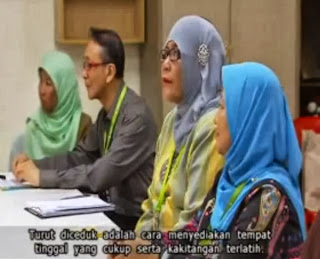One of the things I did while in Taiwan these past two weeks is turn the television on to a news channel and listen to the news over and over again. By the time I have heard the same item five or ten times, I can usually understand almost all of it, which is just brilliant in my efforts to improve my Chinese.
One of the amazing aspects of the news channels in Taiwan is the banality of some of the items. For example, some of the items that ran and ran while we were there are:
- Some students were dissatisfied with the service in a small restaurant so one of them screwed up the menu and tossed it into a bowl of soup.
- An old man didn't have enough money to buy a canister of gas to allow his wife to have a hot shower, so he stole one from outside a shop. But when he got home, his wife criticised him so much that he took the stolen canister back and returned it to the shop he had taken it from.
- Some youths tossed a number of bicycles into the river, apparently because thy were bored.
- A son-in-law of the President, Ma Yingjiu, got into an argument with someone in a restaurant.
- A giant plastic yellow duck was inflated in Keelung harbour.
This last item was particularly prominent in the news all the time we were there. The problem was that, after a few days sitting in the harbour, the duck got rather dirty, and then the authorities tried to wash it. But the first efforts failed, and after research into appropriate detergents, half of it was cleaned, and then for a while it was a half-grey-half-yellow duck. Finally, just as it was all cleaned, it suddenly burst. This news even made it onto the BBC World News.
This repetition of really mundane news stories is just splendid for me. In all the time I was there, I heard almost no international news stories. Maybe some channels report international news, but I didn't find any such channels. It makes the news reported in Brunei's Media Permata or Borneo Bulletin seem quite weighty in comparison.























